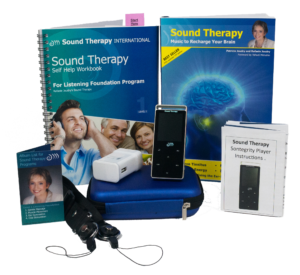For many years we have been aware that Sound Therapy helps both tinnitus and chronic pain. I have written about this in the past and it has raised eyebrows in some medical circles. But the numerous reports from listeners about Sound Therapy helping headaches, nerve pain, post-operative pain and even phantom pain after amputation proved there was something significant occurring.
Now there is new research that highlights the very interesting connection between tinnitus and chronic pain.
The commonality between these two conditions is that both result from damage to a sensory system, and both persist after the cause of the damage has stopped, when the system should supposedly have been able to heal.
A new way of understanding this process was introduced in 2010 by Prof. Josef Rauschecker, Director of the Laboratory for Integrative Neuroscience and Cognition at Georgetown University and a Hans Fischer Senior Fellow of the TUM Institute for Advanced Study.
Prof. Rauschecker proposed that a higher level cognitive system which is responsible for tuning out negative signals may not be working properly in these cases. This interpretation of tinnitus has been hailed as a paradigm shift. Researchers collaborating in the two fields of tinnitus and chronic pain, can now locate the areas in the brain where both tinnitus and chronic pain are sited. These include the ventromedial prefrontal cortex and the nucleus accumbens, where both structural and functional changes can occur, leading to either tinnitus or chronic pain.
These areas act as gatekeeping centres for perceptual stimuli, which means they let us evaluate the meaning and importance of sensory stimuli, both internal and external. It is the meaning we attribute, and our response to the stimuli, which then leads to the creation of the tinnitus or chronic pain cycle.
The fact that classical music activates such a diversity of brain centres gives us a glimpse into why it is so effective in driving change through brain plasticity. Sound Therapy music of course does this to a much greater degree due to its powerful activating impact on the muscular and neural mechanisms of hearing.
These systems relate also to the two major neurotransmitters for positive emotions, dopamine and serotonin. Some researchers are citing the possibility of intervening in the system using these neuro-transmitters, in other words pharmaceutical intervention.
For myself, I would certainly prefer the less invasive method of sensory stimulation through music, which uses the pathways that nature gave us for interacting with the world, and is more likely, in my observation, to have only positive side-effects.
Read more about the latest research by Rauschecker and colleagues.
Read about Sound Therapy and chronic pain.


